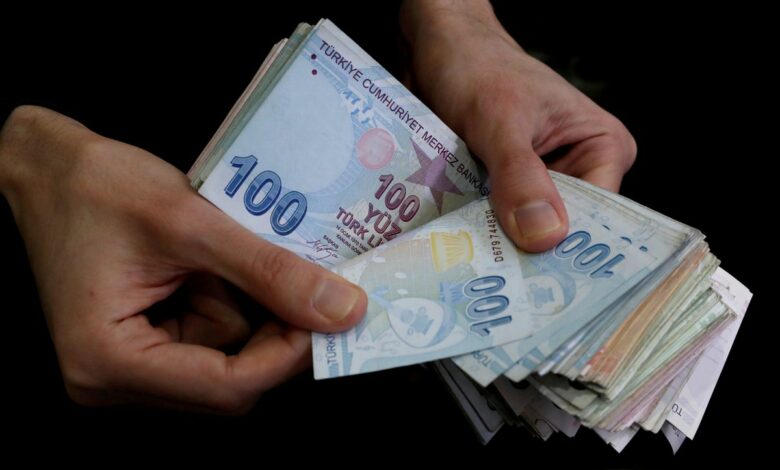
Turkey’s Central Bank again cut a key interest rate Thursday despite soaring consumer prices that are making it difficult for people to buy food and other basic goods, sending the country’s currency to record lows against the U.S. dollar.
The bank’s monetary policy committee said it is cutting the rate from 15% to 14%, though inflation is running at 21%, according to official data.
It is in line with the policies of President President Recep Tayyip Erdogan, who has been pressing for low borrowing costs to boost growth, exports and investments ahead of elections in a year and a half.
The Central Bank has now slashed rates by 5 percentage points since September, running against conventional economic policy of raising interest rates to ease high inflation. Erdogan contends that high interest rates cause inflation and has declared himself an “enemy” of high borrowing costs.
The Turkish lira hit a historic low of 15.28 against the U.S. dollar early Thursday amid the prospect of a new rate cut and then extended its losses following the decision. The lira was trading at 15.60 against the dollar, 5% weaker from Wednesday’s close.
The Turkish currency has lost about half of its value since the start of the year.
The bank has intervened four times in recent weeks by selling off foreign currency in a bid to prop up the lira, but the action has failed to stop its depreciation.
Soaring consumer prices and the falling value of the lira have left many people struggling to make ends meet. Long lines have been forming outside of municipality-run kiosks selling bread at discounted prices.
The leaders of two opposition parties have accused Erdogan of severe mismanagement of the economy and have called for early general elections. Erdogan insists that elections will be held in 2023 as scheduled.



